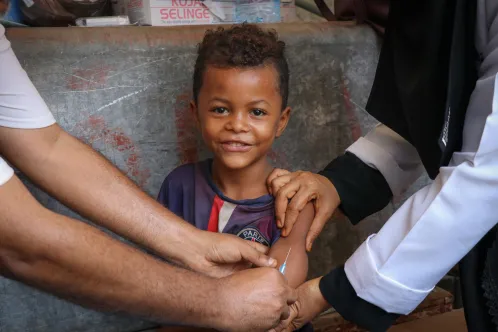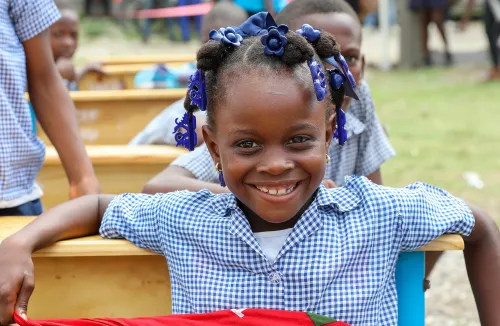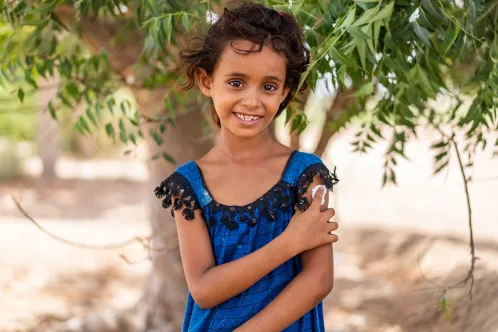PROTECTING EVERY CHILD’S RIGHT TO HEALTH
UNICEF envisions a world where no child dies from a preventable cause.
With the help of our global, national and community partners, our areas of work in children’s health include supporting immunization programs, strengthening health systems and protecting mental health.
Tremendous progress in child and maternal health has been achieved over the past decade. More children survive to celebrate their fifth birthday, while fewer women lose their lives during pregnancy and childbirth.
But more work is needed to ensure that children have what they need to be healthy. Millions of mothers and children are still dying from preventable and treatable causes. Communicable and non-communicable diseases, mental health conditions, injuries and environmental hazards continue to pose threats to children worldwide.
IN 2024, THANKS TO YOUR SUPPORT:
MORE WORK IS NEEDED TO IMPROVE CHILDREN’S HEALTH
- Vaccination rates are at their lowest level in 30 years.
- Over 5 million children died before their fifth birthday in 2021.
- A child dies of pneumonia every 43 seconds.
How UNICEF SUPPORTS CHILDREN’S HEALTH AND WELL-BEING
From supporting immunization programs to strengthening health systems, UNICEF works in 190 countries and territories to help children grow up healthy and happy.
With the help of our donors and partners, UNICEF reaches almost half the world’s children with life-saving vaccines every year. We work with our partners to support immunization programs in over 100 countries to protect children against deadly infectious diseases like polio and measles.
We are also working alongside governments and community partners to strengthen health systems so that all children, and women of reproductive age, have access to affordable, quality healthcare. Strong health systems turn vaccines into vaccinations, and protect children from illness, environmental hazards and the effects of humanitarian emergencies.
Additionally, UNICEF works to prevent all forms of malnutrition by improving children’s and women’s access to nutritious, safe, affordable and sustainable diets.
Learn more about UNICEF'S work to improve children's health:
WE ARE KEEPING CHILDREN SAFE WITH LIFE-SAVING VACCINES
Vaccines have safely reduced preventable deadly diseases like polio and tetanus, and even eradicated smallpox. Our immunization campaigns against measles, cholera and COVID-19 have helped protect the health of many children and families. UNICEF is working to ensure that every child, regardless of where they live, has access to the vaccines they need to survive and thrive.
We are strengthening health systems
A strong health system ensures children, families and communities receive the support they need to stay healthy and safe from threats like infectious diseases. From helping train qualified health workers to investing in healthcare facilities, UNICEF is tirelessly working with our partners to ensure every child has access to resilient and quality healthcare.
We are protecting the lives of mothers and newborns
Globally, every two minutes, a woman dies during pregnancy or childbirth. Almost every one of these deaths was from preventable causes such as infectious diseases and complications during pregnancy or childbirth. UNICEF is committed to protecting the lives of mothers and newborns by supporting high-quality, equitable and low-cost care and services before, during and after birth.
We are protecting children’s mental health
Global crises and the growing threat of climate change are taking a heavy toll on children’s mental health, threatening their well-being and futures. From providing safe spaces during emergencies to working in communities to foster dialogue on mental health, UNICEF is working to ensure children around the world have the support they need to meet their social and emotional needs.



